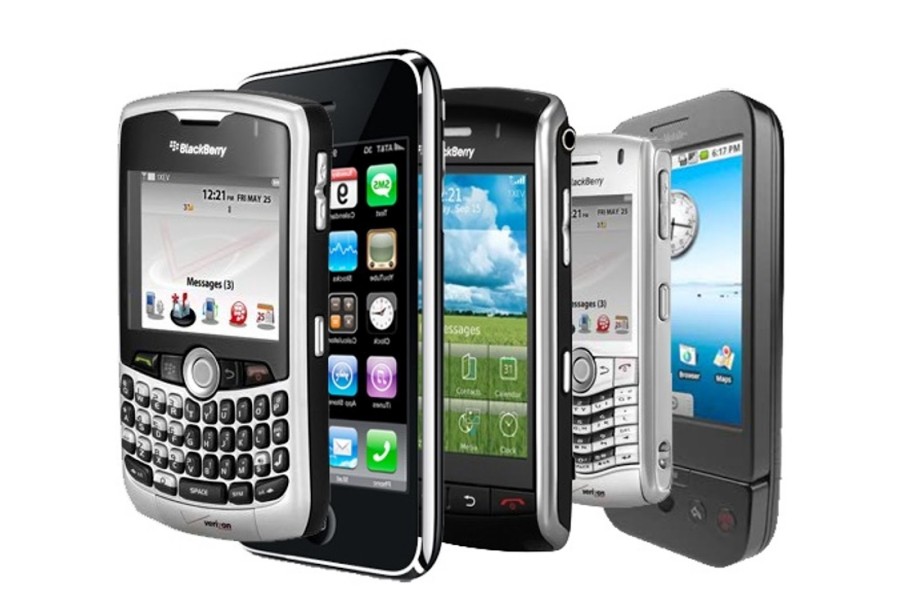 By A&E Editor: Madison Deadman
By A&E Editor: Madison Deadman
Ad-dic-tion noun
: a strong and harmful need to regularly have something (such as a drug) or do something (such as gamble)
: an unusually great interest in something or a need to do or have something
Cell phones are the newest addition to the human body, perhaps, a second brain. You most likely own an iPhone, Android, Blackberry, or a basic flip phone. Do you ever feel the ghost vibration? Are you constantly refreshing your Twitter and Snapchat feed? Is not having it by your side leaving you feeling incomplete and sending you into panic?
Our generation cannot function without cellular devices. It is our number one source of communication. It knows more about us than our own parents. Many people sleep with their phone next to their pillow for crying out loud! These are true symptoms of addiction.
Technology is giving humans social anxiety and is detrimental to human interaction. Instead of approaching someone to say something, people get nervous and feel that it would be much easier to shoot them a text, a Facebook message, or a direct message on Twitter.
People get to know each other through all of these social networks. “Liking” or “Favoriting” someone’s post can go a long way with today’s generation. Even a phone call is too much to ask. It’s intrusive and makes people feel uncomfortable if there are any silences. Messaging is a great way to avoid any conflict. It seems as though there is no more face to face interaction. Nobody actually meets up to get to know someone. It’s all through messaging. There is no way to hear the inflection in the way things are being said, see their facial expressions, and really get to know their true personality.
Not only are phones hurting our communication skills but they are also negatively affecting our health. While staring at the a tiny digital screen, much smaller than a computer with little print, our eyes are squinting and straining to read and we are more susceptible to have eye vision problems later in life. The scary part is, 70% of Americans don’t even realize this or are in denial about it according to The Vision Council.
The high frequency of cellular use can put the user on edge. This is because of the constant alerts, reminders, ringers, and vibrating alerts. We never get a break. The University of Gothenburg in Sweden held a study to see if there is a direct link between psychosocial aspects of cell phone use and mental health manifestations in young adults. They required a group of 20- to 24-year-olds to answer a questionnaire along with a one-year follow-up. What they found in this study was that the female participants who use their phones frequently were associated with sleep disturbances and stress. Whereas frequent male cell phone users were associated with sleep disturbances and symptoms of depression. The overall result concluded that immoderate cell phone use can be a risk of mental health in young adults.
Being teenaged high school students with crazy schedules, the last thing we need is more stress added to our plates.
Many make the argument that in today’s society it’s necessary to be able to communicate at all times. It ranges from checking e-mails to returning phone calls even when you are off the clock. Nowadays it’s expected to be able to do these things even after hours by employers. People are expected to have smartphones to be able to achieve these tasks. Without them, people are looked over and left behind in many situations. An employee who is able to communicate and respond quickly is the more desired worker. The employee who is incapable of instant response is at a disadvantage.
However, many people are incapable of functioning without their phones. The emotional attachment is surreal.
Here are some startling facts according to a recent lookout study performed by WebMD and Time Magazine:
-
Nearly 60% of smart-phone owners don’t go an hour without checking their phones.
-
Some 54% check their phones while in bed — before they go to sleep, after they wake up, or in the middle of the night.
-
Nearly 40% check their phones while on the toilet.
-
Some 30% check their phones during a meal with others
-
9% check their phones during religious services.
-
44% said they would experience “a great deal of anxiety” if they lost their phone and couldn’t replace it for a week.
-
51% check continuously during vacation.
These studies show that we are almost incapable of being without our phones. Think about it: forty percent of people check their phones while using the restroom. There is never any privacy or alone time and we prefer it that way.
Technology is only going to keep advancing as we head into the future, but we have to be careful of how we take advantage of it and incorporate it into our lives. Somehow we need to understand that the electronic products we use every day can and will produce present and future damage. The attachment and addiction is something that we all need to consider.
Question: Is your addiction out of hand?







